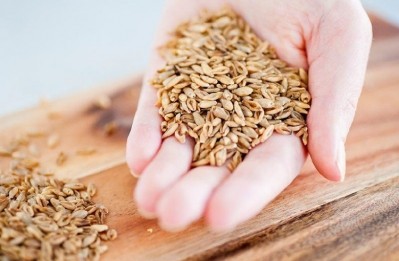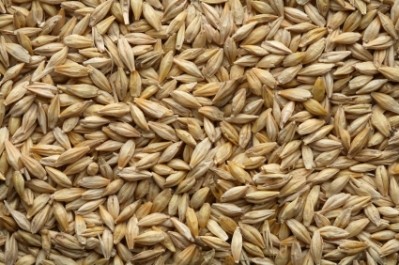High fibre barley provides bakers with health spin
conscious consumer can soon access a high-fibre barley grain as
Australia's national science laboratory (CSIRO) signs a deal to
bring large scale commercial crops of its Barleymax grain to food
makers.
Developed using conventional plant breeding techniques, the CSIRO barley variety, that joins the line-up of healthy food ingredients, claims to contain more than twice the amount of insoluble and soluble fibre found in wheat or oats, as well as resistant starch. CSIRO/Australian Capital Ventures announced on Tuesday that it had signed a joint venture license agreement with fellow Australian firm Austgrains, the maker of the Nu Soya range of soy products and omega-3 oils, that will produce the grain to bring large volumes of the product to market. According to the science laboratory, trials of Barleymax are also under way in other parts of the world. "Healthy foods made with Barleymax are likely to be on Australian breakfast tables in the near future," said Barleymax business manager, CSIRO's Geoff Ball. This latest grain from scientists at CSIRO targets blossoming interest in the health benefits of barley, particularly the role of barley beta glucan in lowering blood cholesterol levels, linked to heart health problems, and its capability to balance blood glucose and insulin response after meals, as well as the association between wholegrains and increased satiety. "Barleymax can be used to produce foods with a low GI and GL. Human trials found that a Barleymax breakfast cereal had a GI of 50, compared to a conventional barley cereal GI of 77," say scientists at CSIRO. Further, riding the wave of interest in resistant starch that fit squarely into the low-glycaemic food trends, as well as health product positions such as prebiotic fibre benefits and a healthy digestive system, a recent trial of Barleymax on 17 volunteers revealed high levels of amylose, resulting in the formation of resistant starch, and suggesting health benefits to the consumer. "The study concluded that consumption of a diet that included consumer foods such as bread, breakfast cereals, biscuits and muffins made from barleymax supplied more fibre and improved indices of bowel health compared with equivalent levels of intake of refined cereal foods and, for some indices, similar wholewheat foods," claim findings from the study conducted at the CSIRO Human Nutrition Clinic in Adelaide, South Australia and published in an October 2007 issue of the British Journal of Nutrition. Introducing dietary fibre into foods is a challenging task for formulators as the ingredient can affect their sensory characteristics by making them thicker. The ingredient also has a tendency to suppress some flavours with increasing concentrations. But CSIRO claims their Barleymax product, with a 'natural sweetness', has 'excellent processing qualities' for use in a wide range of products including: extruded and rolled breakfast cereals, health bars, muffins and breads. "Further testing showed Barleymax has excellent processing properties and foods made with the new grain have a naturally sweet, slightly nutty taste," added Mr Ball.








